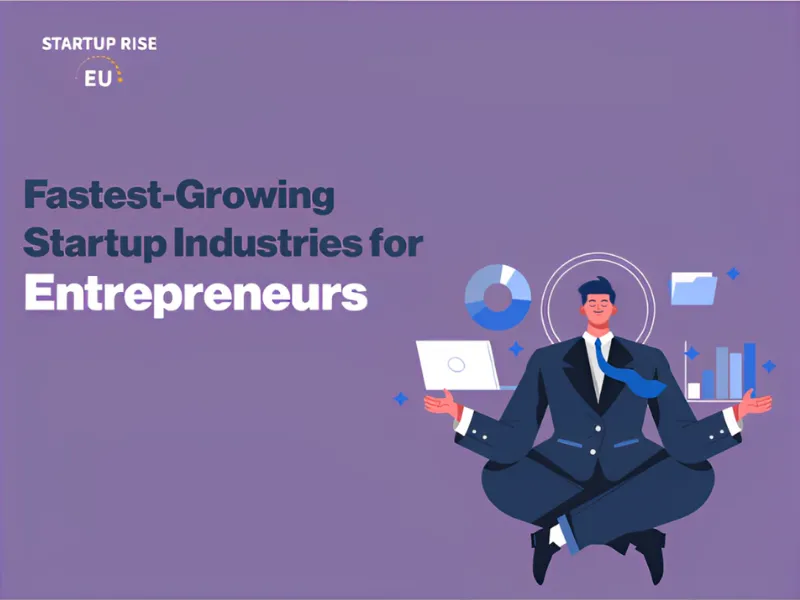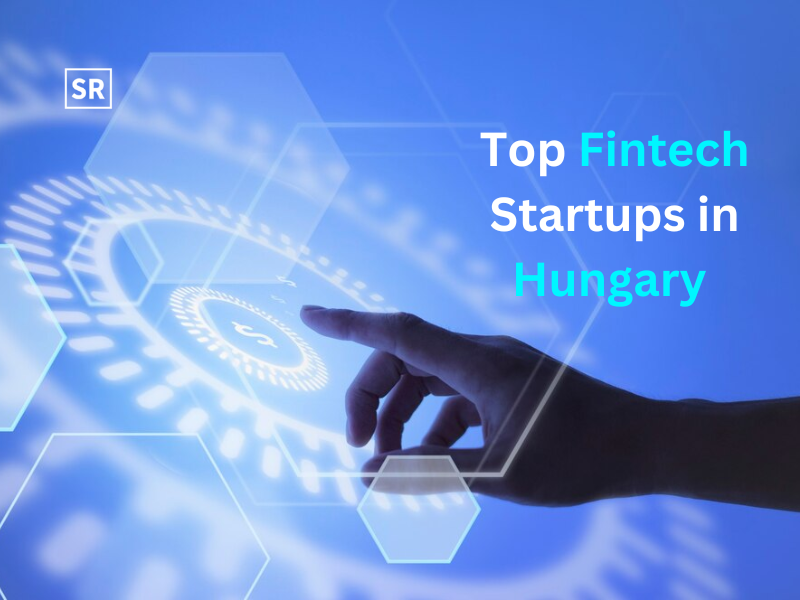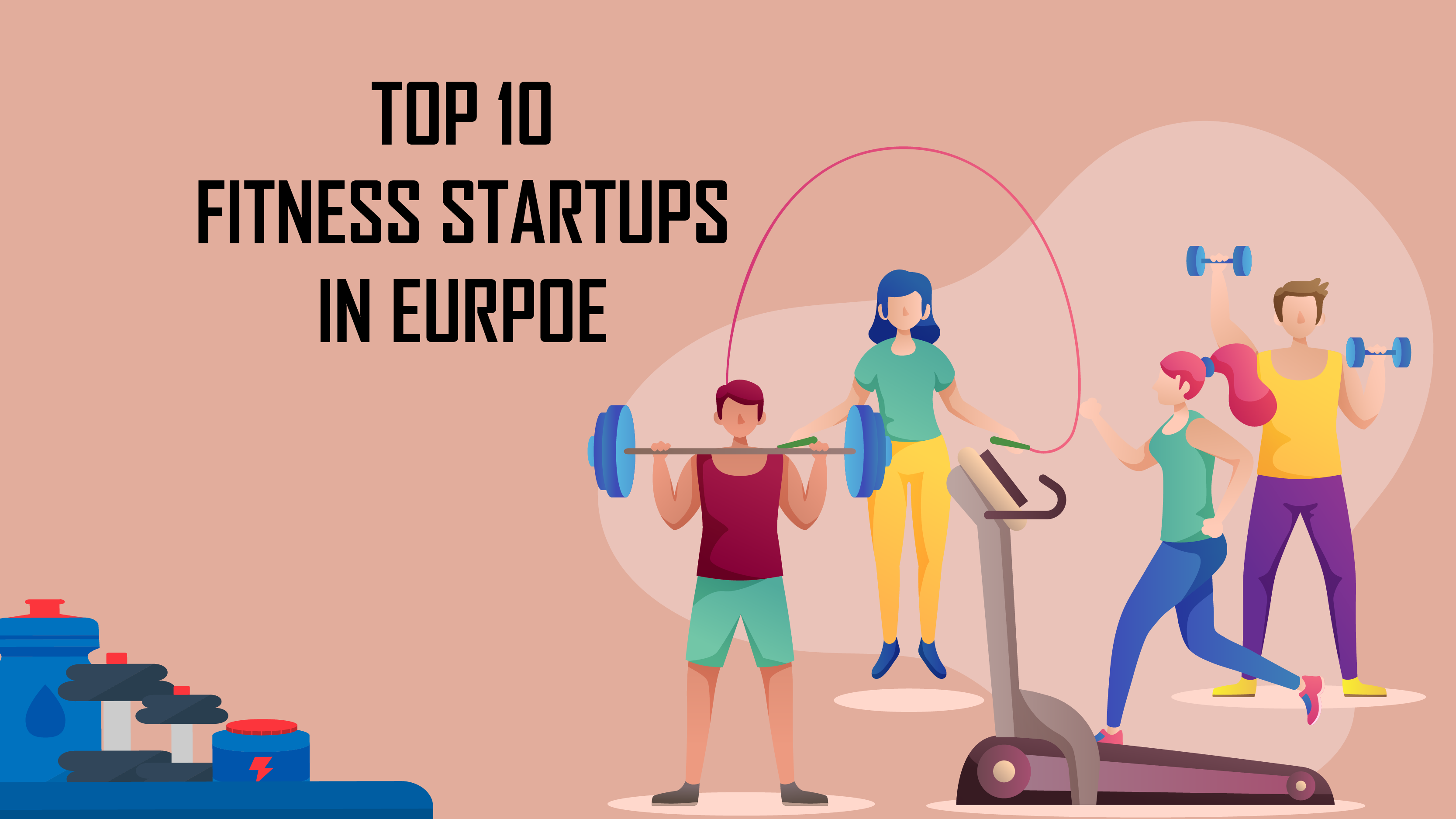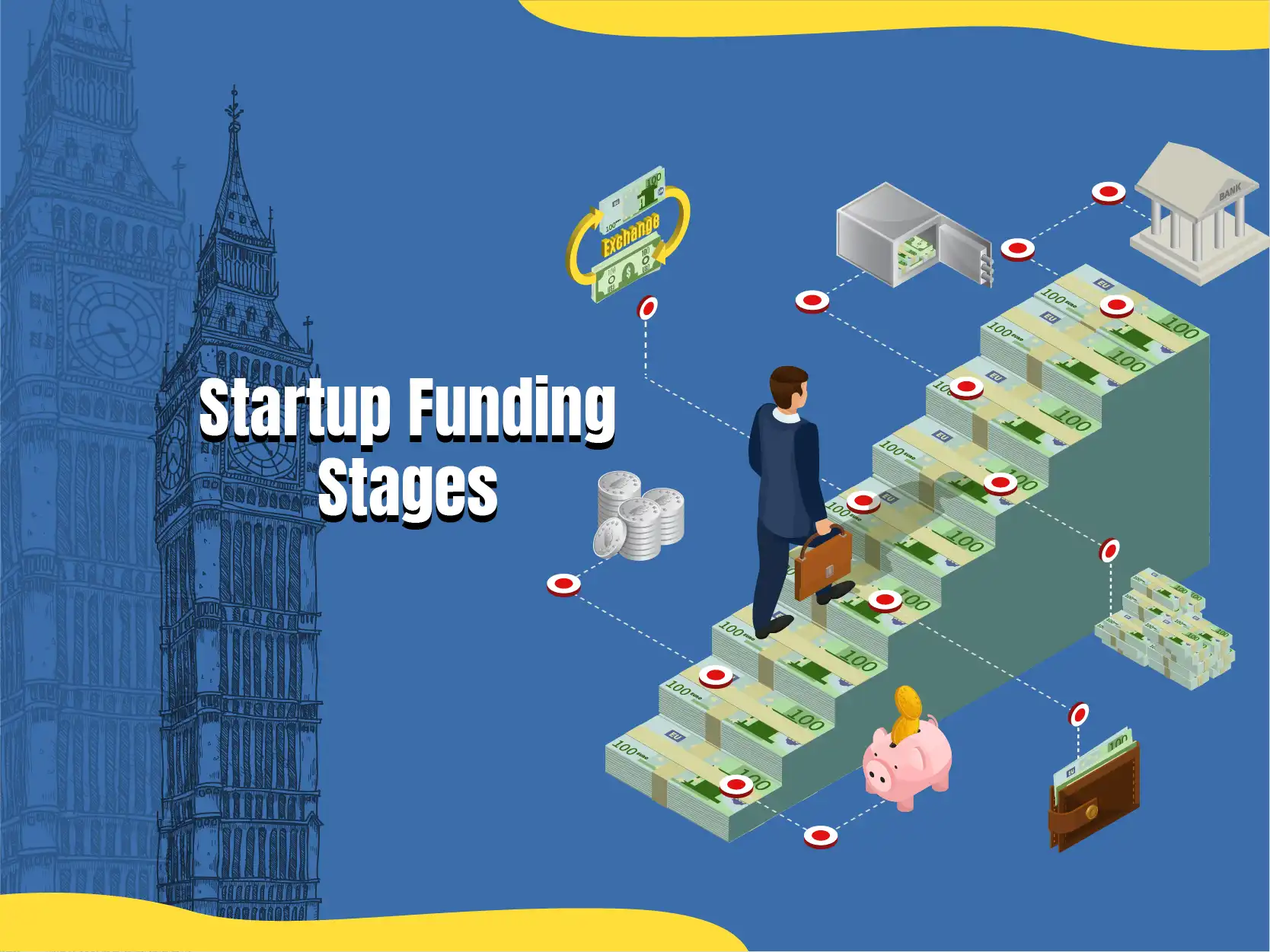
In this article we will discuss the best startup industries in 2024 - 2025. Many industries are the fastest growing industries for startups. Entrepreneurs are interested in investing in industries that are showing rapid startup growth. If you are curious to know which industries are the fastest growing startup industries, and what is their current and future outlook, this article might help you.
SUMMARY
- There are many industries that are currently flourishing globally. Starting a startup in any industry requires in-depth research and analysis.
- Every day, more and more people are becoming interested in startups, as certain industries are expanding rapidly due to their potential to solve everyday problems.
Fastest growing industries for startups
There are many industries that are currently flourishing globally. Starting a startup in any industry requires in-depth research and analysis. Here is a list of the best and fastest growing startup industries based on current value, growth rate and what is driving their growth.
Blockchain
Blockchain technology is an innovative database system that enables transparent information sharing among a network of businesses. Data is stored in blocks that are sequentially linked together.
The growth of blockchain technology and its adoption across various sectors is driven by increasing collaboration, integration with IoT, emergence of BaaS platforms, regulatory frameworks, and interoperability solutions. Custom Market Insights (CMI) projects the blockchain technology market to reach nearly USD 69 billion by 2032, with a compound annual growth rate (CAGR) of 68% from 2023 to 2032.
Ecommerce
E-commerce means buying and selling goods or services over the Internet, which offers convenience and accessibility compared to traditional retail commerce. Instead of physical stores, e-commerce operates through virtual storefronts where customers can make purchases online.
The rapid growth of e-commerce is driven by the widespread adoption of information technology, economic growth, and the benefits of Internet use, which is attracting an increasing number of participants seeking new business opportunities. E-commerce made up 19% of global retail sales in 2023, and projections indicate that it will rise to 25% by 2027. Global retail e-commerce sales are expected to exceed $6.4 trillion in 2024 and $7 trillion by 2025.
Digital Marketing
Digital marketing refers to online strategies used on devices such as computers, phones, and tablets to promote products and services through websites, apps, social media, search engines, and other means. It includes formats such as online video, display advertising, search engine marketing, paid social advertising, and social media posts.
Compared to traditional marketing, such as magazine ads and billboards, digital marketing is highly versatile and targeted. The rapid growth of digital marketing is driven by its data-driven approach, which enables informed decision-making and real-time strategy optimization. It typically offers a better return on investment (ROI) than traditional marketing methods. The global digital marketing market was valued at USD 322.3 billion in 2022 and is projected to grow to USD 1,118.9 billion by 2032, with a compound annual growth rate (CAGR) of 13.6% from 2023.
Generative AI
Generative AI, also known as mass AI, is a branch of artificial intelligence that creates original content such as text, images, video, audio, or software code in response to user prompts. It uses deep learning models, which are advanced algorithms that simulate the functions of the human brain, to analyse huge data sets and create new content based on natural language inputs.
The rapid growth of generative AI tools is driven by their potential to reduce the cost and time required for content creation, thereby increasing productivity and profitability. In 2023, the global generative AI market held a valuation of US$ 43.87 billion, and projections indicate a robust compound annual growth rate (CAGR) of 39.6% during the forecast period (2024–2022). North America led the market with a 49.78% share in 2023.
Healthcare technology
Healthcare technology includes IT equipment, software, medical devices, and advanced systems such as AI, cloud computing, and blockchain that aim to enhance hospital efficiency, medical insights, and overall healthcare quality.
From large diagnostic scanners to tiny wearable sensors, technology plays a vital role in modern healthcare delivery. The global healthcare IT market was valued at USD 168.51 billion in 2022 and is expected to grow to USD 736.09 billion by 2031, at a compound annual growth rate (CAGR) of 17.80% during the forecast period (2024-2031).
Artificial Intelligence
Artificial Intelligence (AI) enables computers and machines to mimic human intelligence and perform tasks such as reasoning and problem-solving. It is a broad field of computer science that aims to create machines capable of performing tasks that traditionally required human intelligence. Advances in machine learning and deep learning are transforming industries around the world. AI allows machines to match or surpass human capabilities.
The rapid development of AI is driven by increased computing power, increased storage capacity, and advanced algorithms, enabling exponential growth in AI applications. Industries leverage these advancements to automate business processes, gain insights into product behavior and customer actions, and improve decision making. In 2023, the global artificial intelligence market commanded a valuation of US$196.63 billion, and projections indicate a compound annual growth rate (CAGR) of 36.6% from 2024 to 2030. Innovations driven by tech giants are being adopted in various sectors such as automotive, healthcare, retail, finance, and manufacturing.
Educational technology
Educational technology (EdTech) uses digital tools such as software, apps, online courses, and interactive platforms to improve teaching and learning experiences. Its goal is to improve educational access, engagement, and personalisation through information and communication technology (ICT). EdTech supports various classroom settings – whether in-person, smart, hybrid, or remote – to achieve better educational outcomes.
The rapid growth of educational technology is driven by factors such as technology adoption, ease of use, flexibility, interactivity, self-efficacy, enjoyment, and institutional support. The education technology market was valued at USD 108.63 billion in 2019 and is expected to grow from USD 123.4 billion in 2023 to USD 388.81 billion by 2031, at a compound annual growth rate (CAGR) of 13.6% during the forecast period (2024-2031).
Biotechnology
Biotechnology uses biological processes to develop technologies and products to improve human and animal health, agriculture, environmental sustainability, and specialised biochemical manufacturing. It uses advances in molecular biology, particularly genomic information, as a key driver.
Modern biotechnology delivers innovations to fight diseases, enhance food security, promote clean energy, and improve industrial processes whether it’s a better level switch or developing new biosecurity systems. The biotechnology market was valued at US$1.21 trillion in 2022 and is projected to grow from US$1.38 trillion in 2023 to US$3.90 trillion by 2031, with a compound annual growth rate (CAGR) of 13.9% during the forecast period (2024-2031).
Cyber Security
Cybersecurity involves keeping systems, networks, and programmes secure from digital threats such as unauthorised access, data breaches, and ransomware attacks. It protects computers, servers, mobile devices, and sensitive information from malicious activities aimed at disrupting operations or stealing valuable data.
With the growing number of devices and evolving attack methods, effective cybersecurity measures are critical. In 2023, the global cybersecurity market held a valuation of USD 222.66 billion, and projections indicate a compound annual growth rate (CAGR) of 12.3% from 2023 to 2030.
Internet of Things
IoT or Internet of Things refers to the interconnection of physical devices such as appliances and vehicles through embedded software, sensors, and connectivity. This enables these objects to exchange data and operate more efficiently. IoT facilitates the networking and communication of devices and objects, enhancing automation and data collection capabilities.
The IoT market was valued at US$318.8 billion in 2022 and is projected to grow from US$380.6 billion in 2023 to US$1572.37 billion by 2031, with a compound annual growth rate (CAGR) of 19.4% during the forecast period (2024-2031).
Financial technology
Fintech, or financial technology, refers to apps, software, and technologies that enable digital access, management, and insights into finance, as well as facilitate financial transactions. It aims to improve and automate financial service delivery.
The global fintech market was valued at USD 294.74 billion in 2023 and is projected to grow to USD 1,152.06 billion by 2032, at a compound annual growth rate (CAGR) of 16.5% during the forecast period (2024–2022). North America led the market with a 34.05% share in 2023
Leisure and entertainment
The arts, entertainment, and recreation sector includes a wide range of establishments that cater to cultural, entertainment, and recreational interests. It includes venues for live performances, exhibitions, historic preservation, and recreational activities.
The leisure industry, focused on products and services related to entertainment, recreation, sports, and tourism, is projected to grow from $1624.5 billion in 2023 to $1729.21 billion in 2024, with a compound annual growth rate (CAGR) of 6.4%. Factors contributing to this growth include leisure time, economic conditions, demographics, urbanisation, and government policies. The global leisure market is expected to grow significantly from 2024 to 2031.
Virtual Reality
Virtual reality (VR) is a computer-generated environment that simulates real-world scenes and objects, providing users with an immersive experience through devices such as headsets or helmets. VR enables interactive engagement in various applications such as gaming, medical training, and sports enhancement.
This technology creates a three-dimensional (3-D) visual or sensory environment where users can interact with virtual elements. The global virtual reality market was valued at USD 15.75 billion in 2022 and is projected to grow from USD 19.15 billion in 2023 to USD 91.54 billion by 2031, at a compound annual growth rate (CAGR) of 21.6% during the forecast period (2024–2031).
Logistics
Logistics involves managing the acquisition, storage, and transportation of resources to their final destination, ensuring they are available in the right quantities, at the right time, and in excellent condition for internal or external customers. It includes transportation and storage within the supply chain, which is a network of businesses that produce and distribute goods globally.
Originally focused on military supply chains, logistics now plays a vital role in global commerce, including e-commerce. The global logistics market was valued at US$9.82 trillion in 2022 and is projected to grow from US$10.36 trillion in 2023 to US$15.93 trillion by 2031, with a compound annual growth rate (CAGR) of 5.52% during the forecast period (2024-2031).
Delivery Services
Delivery services involve fulfilling requests to move items from one location to another, typically within a 50-mile radius, using various transportation modes such as vehicles, bicycles, and public transportation. Providers handle multiple orders and may also assist with item selection or shopping when associated with a delivery request.
These services cater to individuals and businesses of all sizes and operate on a local, regional, or national level, often offering options such as same-day, next-day, and standard delivery with tracking capabilities.
The global express delivery market was valued at US$303.91 billion in 2022 and is projected to grow from US$333.39 billion in 2023 to US$699.21 billion by 2031, with a compound annual growth rate (CAGR) of 9.7% during the forecast period (2024-2031).
Conclusion
Every day, more and more people are becoming interested in startups, as certain industries are expanding rapidly due to their potential to solve everyday problems. If you are considering starting your own startup, focusing on these industries can lead to early growth and success. However, thorough research and analysis is necessary before starting any business venture.


 Follow us
Follow us Follow us
Follow us















